Ancient Phrygian ovens, hearths unearthed in Türkiye’s Midas Kale
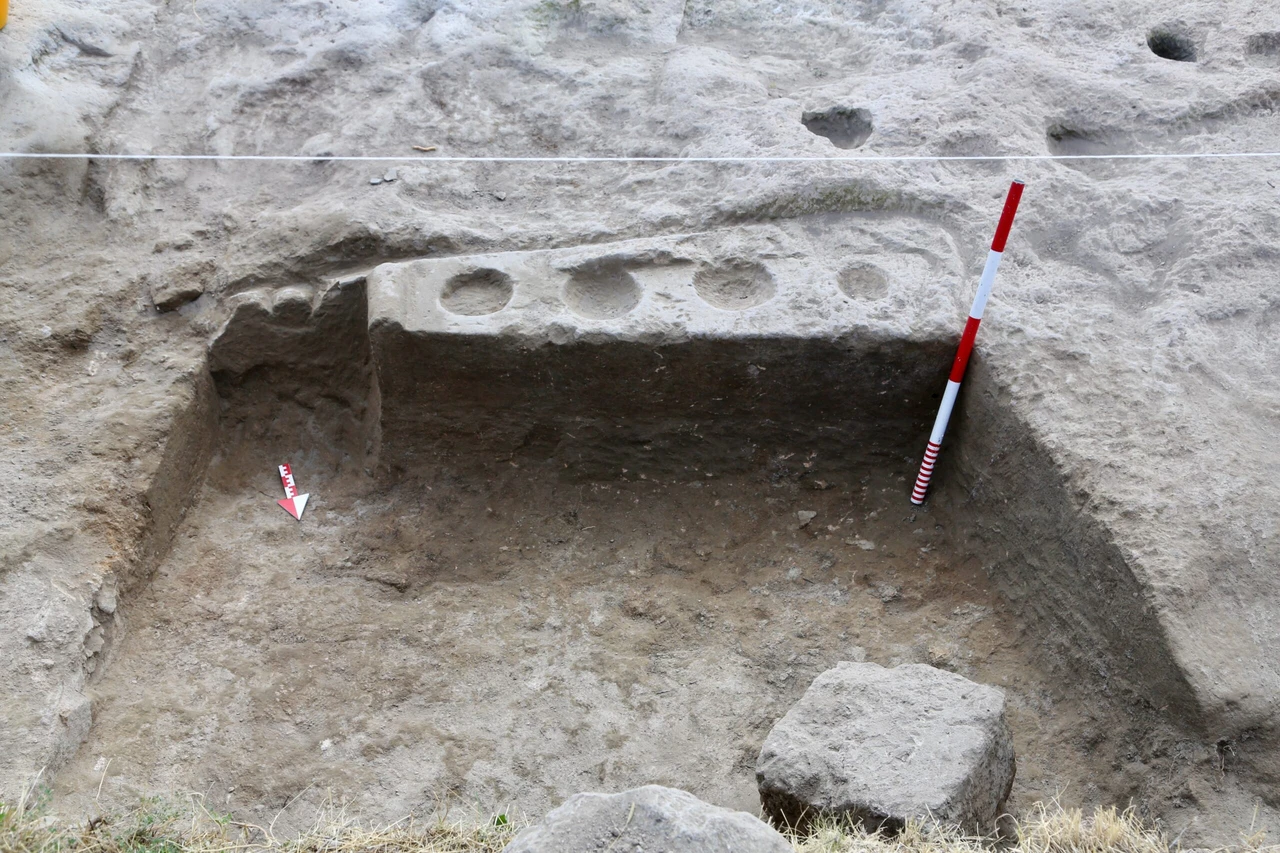 In the archaeological excavation conducted in Midas Kale, Eskisehir, ovens and hearths belonging to the Phrygians were uncovered, Türkiye, October 9, 2024 (AA Photo)
In the archaeological excavation conducted in Midas Kale, Eskisehir, ovens and hearths belonging to the Phrygians were uncovered, Türkiye, October 9, 2024 (AA Photo)
Archaeological excavations in Midas Kale (Midas Fortress), Eskisehir, located between the districts of Han and Seyitgazi, have uncovered ovens and hearths dating back to 2,800 years ago.
The area, known for the famous Yazilikaya Monument, is a significant site for historical findings related to the Phrygian civilization. The excavation, initiated in 2022, is a collaboration between the Ministry of Culture and Tourism and Anadolu University.
Lydian and Roman-era ceramics were discovered in the ancient ovens and hearths, adding further historical depth to the site.

Ancient rituals revealed
Yusuf Polat, associate professor from Anadolu University’s Department of Archaeology and the head of excavation, explained the significance of these findings. “The presence of rock basins near an idol representing the mother goddess is clear evidence that this area was used for rituals invoking abundance and fertility,” Polat noted.
The uncovered ovens and hearths were used by the Phrygians to cook the meat of sacrificial animals and bake bread as part of these rituals.
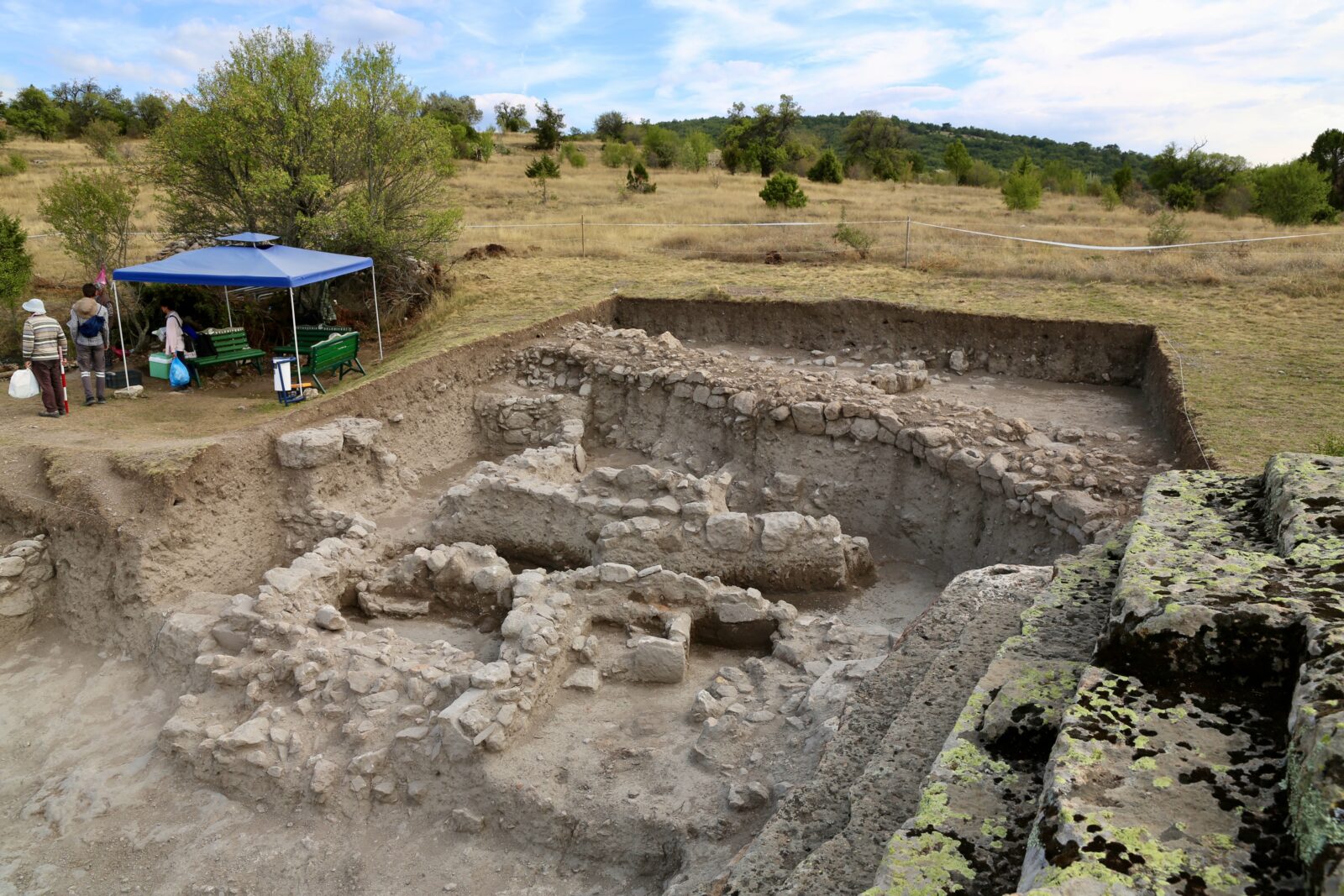
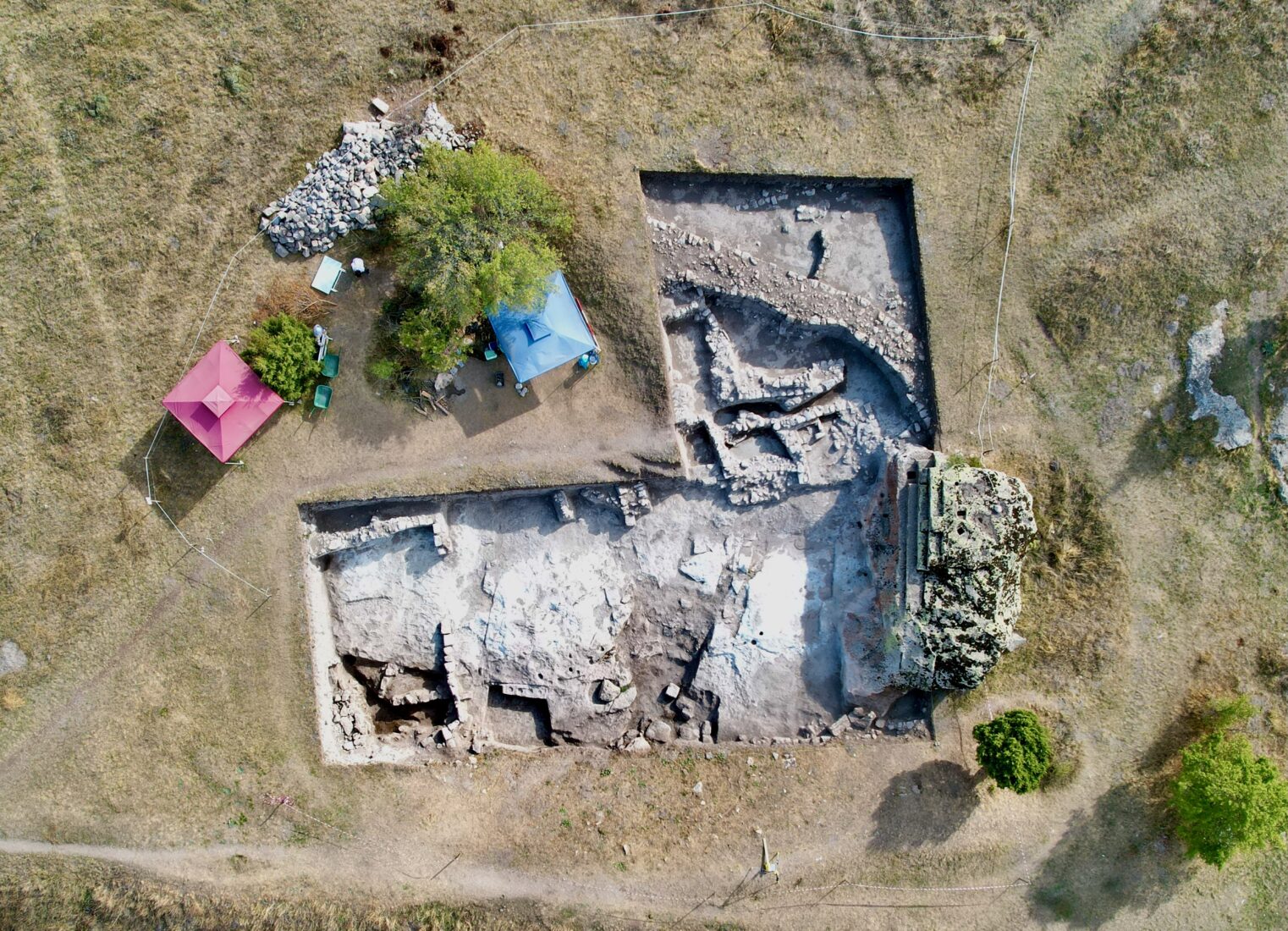
Sacred Midas Kale dating back to 7th century BC
The excavations primarily focus on the “Agdistis Sacred Area,” situated on the upper plateau of Midas Kale. The team found a Phrygian rock altar, dating back to the seventh century B.C., and uncovered nearby ovens that were part of ritual preparations. Additionally, they discovered stone foundations and wooden structures believed to have been used in these ancient ceremonies.
Polat added that the site also yielded artifacts from different eras, including Lydian ceramics from the seventh to sixth century B.C. and Roman ceramics from the first and second centuries A.D.
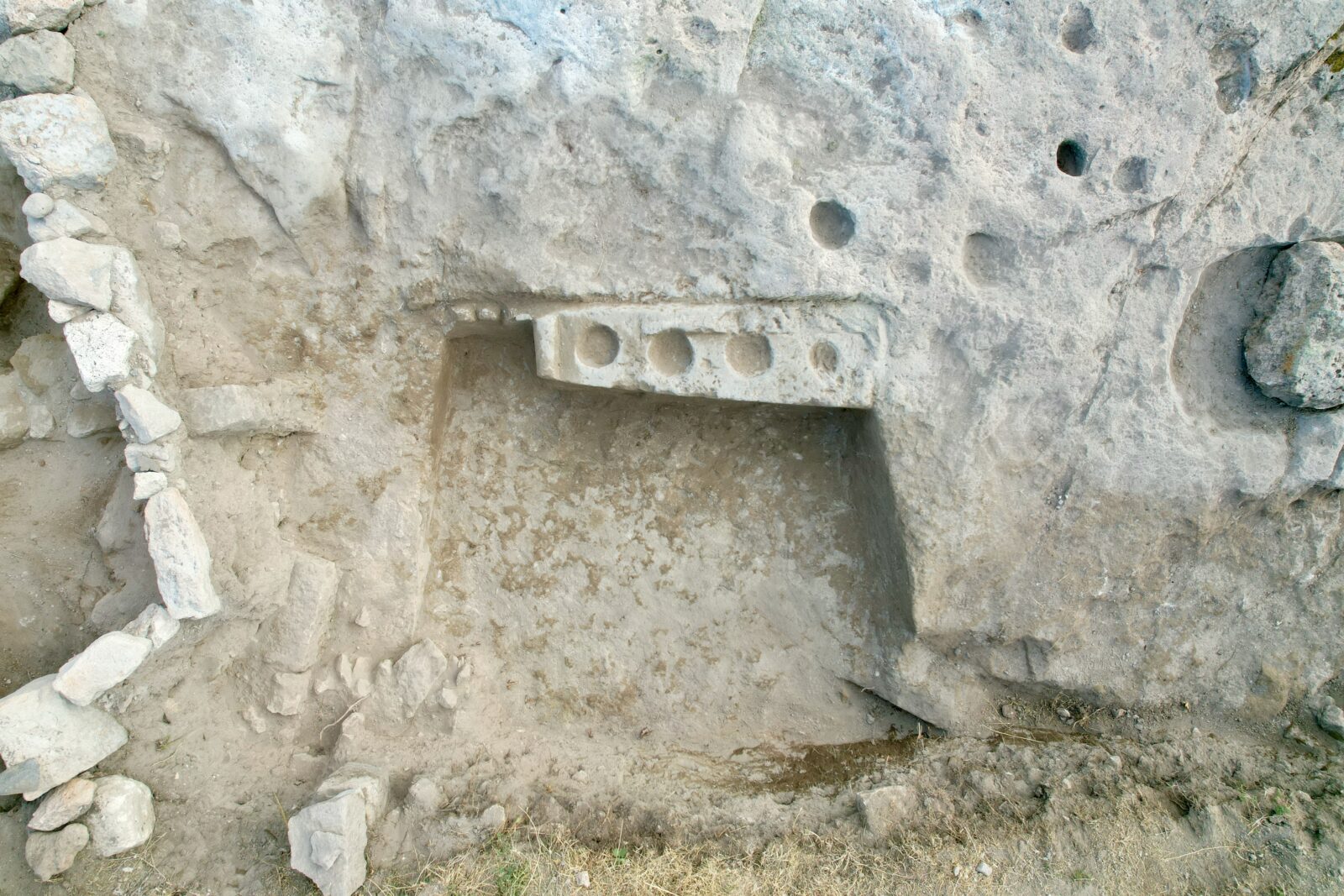
Mother goddess worship in Phrygia
One of the most fascinating discoveries was a rock idol depicting Matar, the mother goddess worshipped in Phrygia. The idol, along with four rock basins and square-shaped hearths, offers significant insight into the religious practices of the time. These findings suggest that the area was considered sacred and used in rituals dedicated to Matar.
“This discovery sheds light on how ancient rituals were organized,” Polat emphasized.
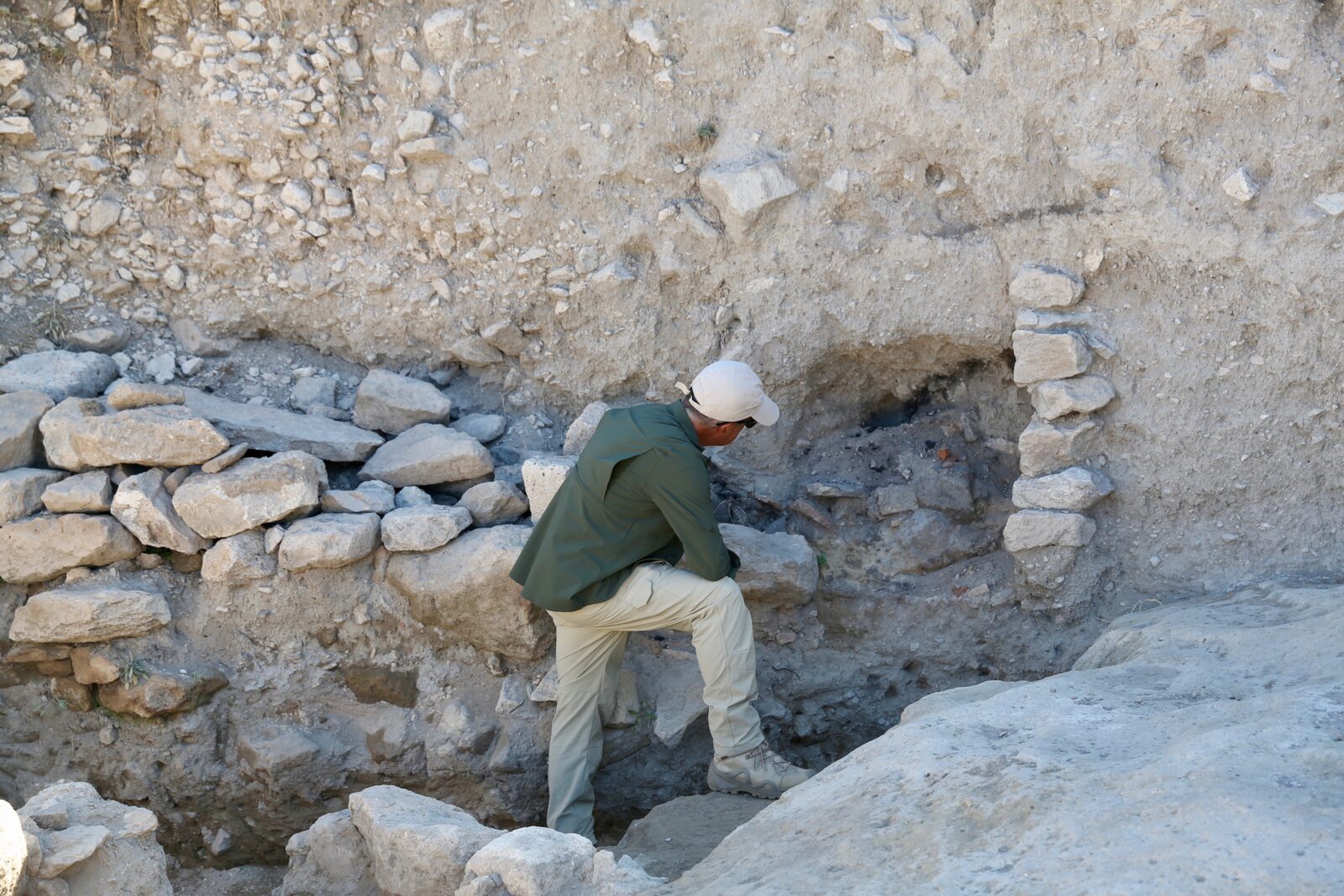
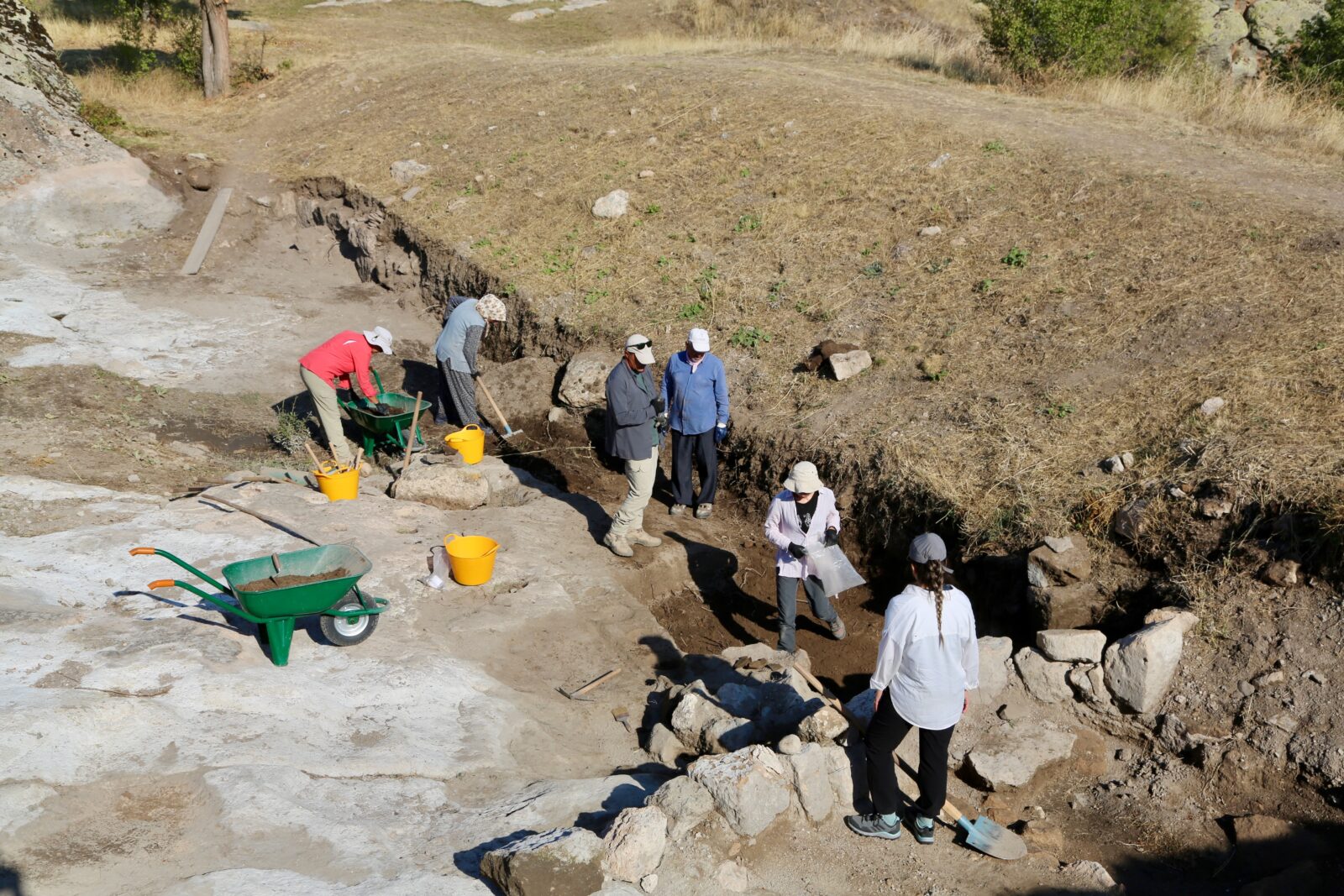
Continuous settlement for 250,000 years
The Midas Valley, spanning 3 kilometers, has a rich history of human settlement that stretches back 250,000 years, from the Paleolithic era to the present. “Our surface research revealed stone tools from the Lower Paleolithic period, showing that this area has been a preferred settlement throughout history due to its fertile lands and strategic defensive position,” Polat explained.
With each excavation, new layers of history are being uncovered in Midas Kale, further establishing its importance in Türkiye’s archaeological heritage.



